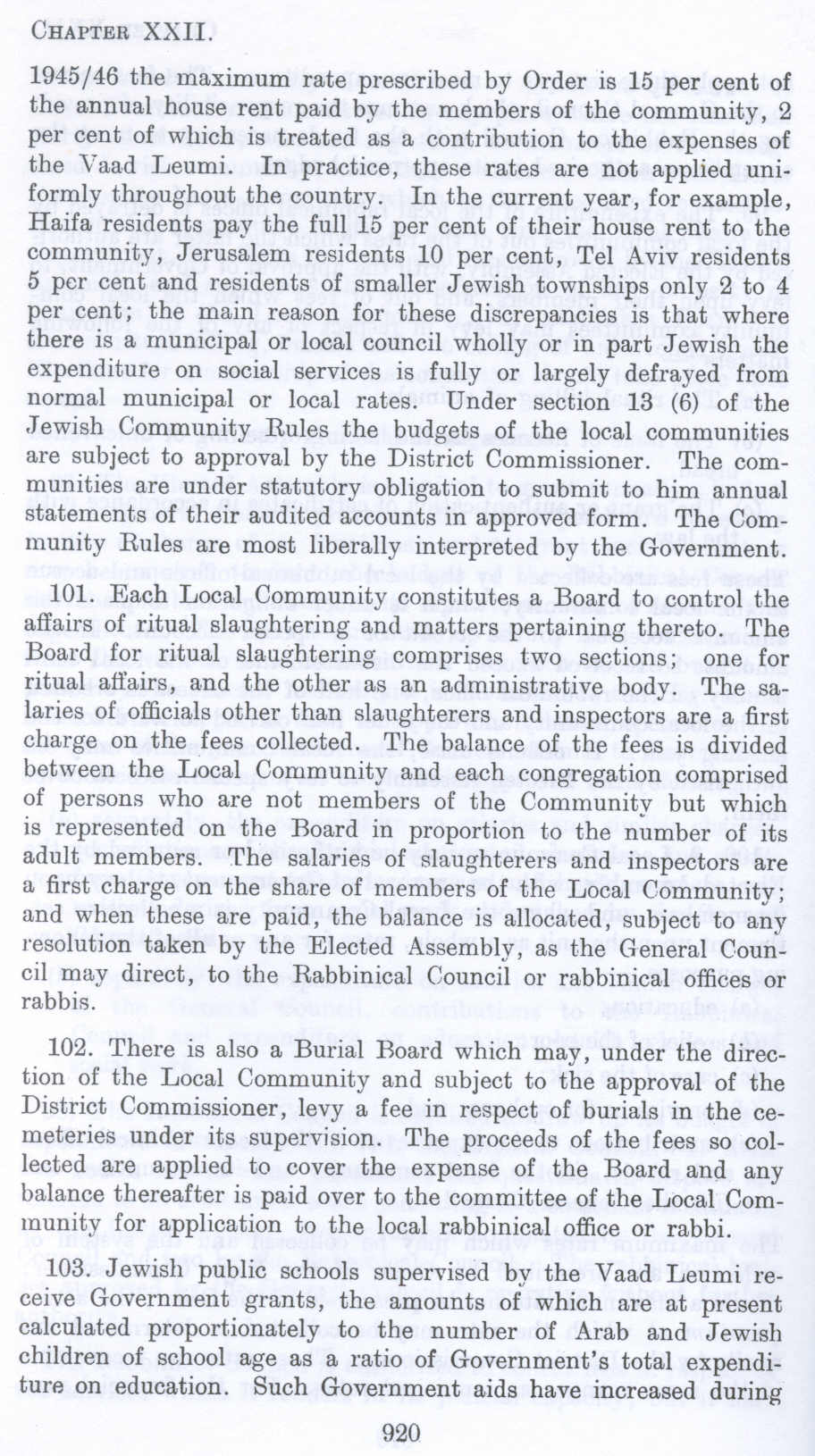| Prev | Next |  |
| Prev | Next |
| PalestineRemembered | About Us | Oral History | العربية | |
| Pictures | Zionist FAQs | Haavara | Maps | |
| Search |
| Camps |
| Districts |
| Acre |
| Baysan |
| Beersheba |
| Bethlehem |
| Gaza |
| Haifa |
| Hebron |
| Jaffa |
| Jericho |
| Jerusalem |
| Jinin |
| Nablus |
| Nazareth |
| Ramallah |
| al-Ramla |
| Safad |
| Tiberias |
| Tulkarm |
| Donate |
| Contact |
| Profile |
| Videos |
British Mandate: A Survey of Palestine: Volume II - Page 920 |
Disclaimer
The above documents, article, interviews, movies, podcasts, or stories reflects solely the research and opinions of its authors. PalestineRemembered.com makes its best effort to validate its contents.


Post Your Comment
*It should be NOTED that your email address won't be shared, and all communications between members will be routed via the website's mail server.
1945/46 the maximum rate prescribed by Order is 15 per cent of the annual house rent paid by the members of the community, 2 per cent of which is treated as a contribution to the expenses of the Vaad Leumi. In practice, these rates are not applied uniformly throughout the country. In the current year, for example, Haifa residents pay the full 15 per cent of their house rent to the community, Jerusalem residents 10 per cent, Tel Aviv residents 5 per cent and residents of smaller Jewish townships only 2 to 4 per cent; the main reason for these discrepancies is that where there is a municipal or local council wholly or in part Jewish the expenditure on social services is fully or largely defrayed from normal municipal or local rates. Under section 13 (6) of the Jewish Community Rules the budgets of the local communities are subject to approval by the District Commissioner. The communities are under statutory obligation to submit to him annual statements of their audited accounts in approved form. The Community Rules are most liberally interpreted by the Government.
101. Each Local Community constitutes a Board to control the affairs of ritual slaughtering and matters pertaining thereto. The Board for ritual slaughtering comprises two sections; one for ritual affairs, and the other as an administrative body. The salaries of officials other than slaughterers and inspectors are a first charge on the fees collected. The balance of the fees is divided between the Local Community and each congregation comprised of persons who are not members of the Community but which is represented on the Board in proportion to the number of its adult members. The salaries of slaughterers and inspectors are a first charge on the share of members of the Local Community; and when these are paid, the balance is allocated, subject to any resolution taken by the Elected Assembly, as the General Council may direct, to the Rabbinical Council or rabbinical offices or rabbis.
102. There is also a Burial Board which may, under the direction of the Local Community and subject to the approval of the District Commissioner, levy a fee in respect of burials in the cemeteries under its supervision. The proceeds of the fees so collected are applied to cover the expense of the Board and any balance thereafter is paid over to the committee of the Local Community for application to the local rabbinical office or rabbi.
103. Jewish public schools supervised by the Vaad Leumi receive Government grants, the amounts of which are at present calculated proportionately to the number of Arab and Jewish children of school age as a ratio of Government's total expenditure on education. Such Government aids have increased during
920